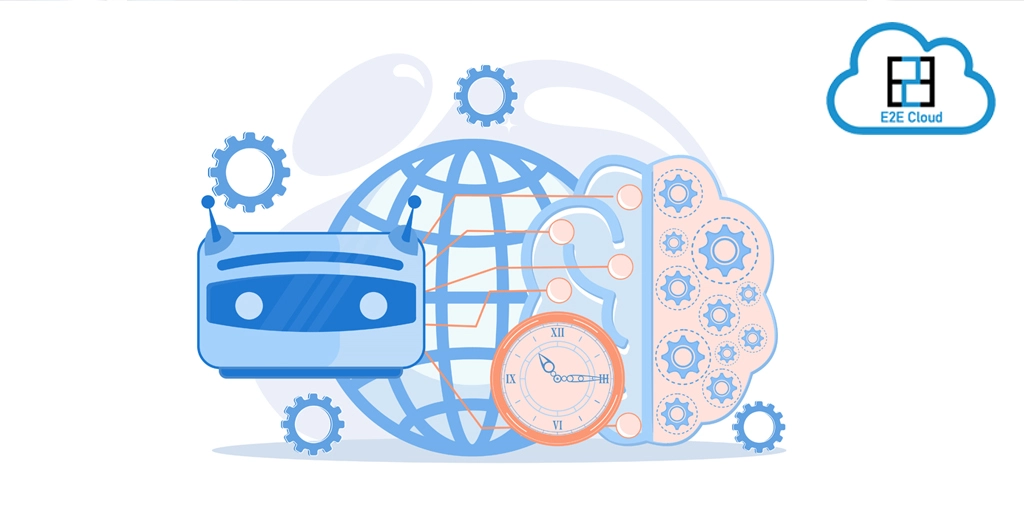Daddy, what are clouds made of?
Linux servers, mostly.
The idea of cloud computing is no longer a mystery. Cloud computing is the term used in every aspect of digital transformation, so much that it has become a part of everyday life.
To better appreciate the cloud, let us see what it is and what are the benefits associated with it.
What is cloud computing?
A basic definition of cloud computing involves delivering various services over the internet. From software and analytics to secure data storage, everything can be delivered via the cloud.
The most widely used cloud computing services are AWS, Azure, GCP, Alibaba, E2E. It is a comprehensive platform for cloud computing offered by Amazon.
Advantages of cloud computing
There is a reason why 85% of enterprises are using multiple clouds. This proportion is expected to grow to 98% in the coming three years. Here are some of the top benefits of cloud computing that these organizations are availing:
1. Get a competitive edge
We completely understand that switching from your long-standing tools and technologies is never an easy task. Adopting cloud computing in your organization will provide you with infrastructure equivalent to the giant companies ruling in the market.
The future for public cloud computing technology seems to be bright. The sector's revenue is expected to jump to $331 billion by 2022 (from $175.8 billion in 2018).
2. Fulfill your business needs
Cloud computing is loved for its flexibility. Isn't it? You can sign up for the features that you need for your business and gradually increase or decrease them as the requirement changes. Consequently, you can save on the extra costs for unused features.
3. Access on the go
The accessibility provided by cloud computing is a game-changer for your business. The team members can access the data and systems from anywhere and anytime – as they like. Paul Maritz, CEO of VMware, quoted it rightly, "Cloud is about how you do computing, not where you do computing."
It cuts the crap of sending emails for getting access to project information, order supplies, timesheets, invoices, and whatnot.
4. Enhanced security
While most businesses don't consider the plausibility of internal data theft openly, but, there has been a high percentage of data thefts occurring internally.
Various organizations have security concerns while adopting a cloud system. Well, if you, too, believe the same, it's time to consider some reliable statistics. RapidScale claims that 94% of the businesses saw improvement in security after switching to the cloud. 91% said that the cloud has made it easier to meet government compliance requirements.
The prime reason behind this enhanced security is data encryption while transferring and storing in the databases. It has made information less accessible to hackers and unauthorized people.
5. Effortless collaboration
Cloud lets people work more efficiently and effectively than ever before. No need to book conference rooms or take flights when people across the world can meet over a Skype call. No more need to take the print out copies of the reports – they all are accessible on the cloud.
Cloud collaboration has helped the employees in various aspects of their work. They can easily utilize file versioning or real-time editing to speed up the processes. Data, applications, and services – all are accessible remotely from any device. It helps in better collaboration, boosted productivity, and scaled the company's profits.
6. A better ROI
Return on Investment (ROI) is a significant factor for the wide acceptance of cloud computing. Companies using cloud computing have lower overheads when compared to traditional companies. A study of 1300 companies conducted by RackSpace found that 88% of them were using the cloud to cut costs.
Cloud computing also provides you with more flexible subscriptions and variety in terms of software usage.
7. Disaster recovery
All organizations worry about data loss. Agree? When you store your data in the cloud, you can access it even if the devices such as laptops or smartphones are inaccessible.
With the help of cloud computing, organizations can easily and quickly recover their data in the event of emergencies – be it a natural disaster or power outages.
A benefit to the environment
Cloud computing needs fewer physical servers for setup. As a result, companies can downsize the data centers (or eliminate them) while storing their data on the cloud.
Based on Microsoft's study, cloud storage can be 79% to 93% more energy-efficient than a traditional on-premise data center.
Wrapping up
Cloud computing has enhanced the quality and use of computer technology over the last few years. Thanks to the benefits of cloud computing, more and more engineers and companies are drifting towards it.
The cloud systems offer various benefits, including more geographic reach and better-quality websites and servers. They have also enhanced the way we monitor systems, use multiple servers, and scale applications.
We are yet to witness more wonders done by cloud computing. Hopefully, you found this article helpful.
Signup here for a free trial: https://bit.ly/3mFerJn










